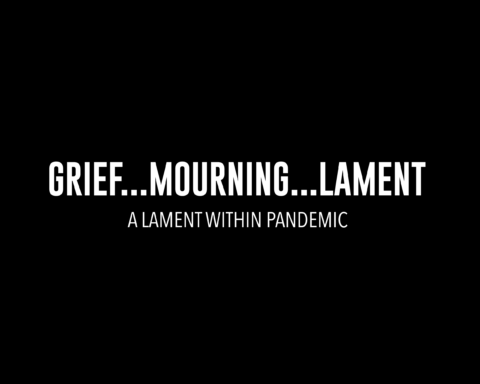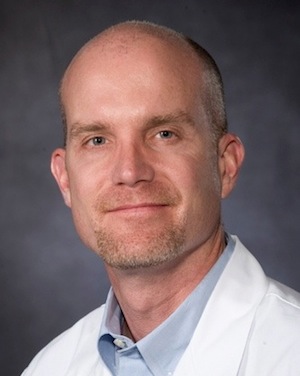
Editor’s Note: We’ve spent the last few weeks reflecting on what our Christian faith has to say to our current systems of healthcare and health insurance. With today’s article, we take a step back and reflect on the healing and wholeness that, as earlier authors have claimed, lies close to the heart of the Christian tradition. The foundational narratives of the Christian faith are chock full of stories about healing and wholeness, particularly the healing miracles of Jesus recounted in the gospels. What do with as 21st-century Christians do with these healing miracles today? The following article from Rev. Jenny McDevitt offers a response.
I spend a lot of time praying for healing. As a pastor of pastoral care, that’s a significant part of my job. When the news is the worst, I pray for the best. Sometimes we get the miracle story and the enormous, inconsiderate cancer cells disappear, or the transplanted heart starts beating, or the emergency surgery reverses what seemed be certain paralysis. Sometimes it happens, and we shout with joy and hold each other as we weep in amazement.
Far more often, however, the story ends differently. During February’s 28 short days, our congregation bore witness to the resurrection thirteen separate times. Thirteen times we commended our friends, our family, “into the arms of God’s mercy, into the blessed rest of everlasting peace, into the glorious company of the saints in light.” Three of these beloved were well under the age of 40, lives cut short by cancer, a car accident, chromosomal abnormalities at birth.
This is either the worst – or the best – time to ask me to talk about healing and miracles.
___________________________________________
I spend a lot of time praying for healing. As a pastor of pastoral care, that’s a significant part of my job.
___________________________________________
All I can offer is an account of my own wrestling with that issue. What follows is the text of a sermon I preached as part of a recent sermon series. We called it the Big Questions series: Do we really need the church? Jesus was a good guy, but do we really have to say he’s the Son of God? Doesn’t all the suffering in the world prove that God is useless? How do we know Christianity is true? What about Muhammed, and the Buddha, and all the others? And, of course, do miracles happen?
I approach the question as one who is called to walk through the valley of the shadow of death, as one who, even at the grave, makes our song, “Alleluia, Alleluia, Alleluia.”
Sermon: Do Miracles Happen?
Texts: Mark 4:35-31 and Mark 5:21-42
Do miracles happen? That’s the big question of the week, and I admit I am somewhat tempted to simply say yes and sit back down again, because to say much more is to venture into some very deep water.
So let’s start there. The most important thing I know about deep-water theology, I learned from my high school swim teacher.

Ms. Massey’s swim class was not my favorite part of the day. I went to an all-girls Catholic high school. Every freshman was required to take swim class. It was as bad as you are already imagining — all of us lined up on the edge of the pool in matching, navy-blue polyester swimsuits. Our last names were spelled out in block letters across light blue swim caps, and every time the whistle blew, we were to dive in and swim two laps of the competition-length pool.
On one of the last days of the semester, as we were about to make our way to the locker room, Ms. Massey called for our attention. “Girls,” she said, “Girls, some of you swim like you’re going to make it to the Olympics. Some of you still swim like you’re just glad to make it to the other side of the pool.” (She had a way with words, didn’t she?) “But that’s all right,” she said. “That’s all right, because girls, remember this: in truly deep water, everyone is just swimming to survive. Girls, if the water is deep enough, it doesn’t matter if you are a butterflier or a dog-paddler. All that matters is that you keep your head above water.”
I think there are two main times we talk about miracles. One is when the water is just fine. When we ask questions or engage ideas for the sake of curiosity. For the pursuit of knowledge and understanding, or to spark a lively conversation around the dinner table. It’s when a blog post, a newspaper article, or a bible study sparks questions or dusts up confusion. That’s conversation that stretches us and sharpens us, and it’s important.
___________________________________________
“If the water is deep enough, it doesn’t matter if you are a butterflier or a dog-paddler. All that matters is that you keep your head above water.”
___________________________________________
The other way, the other time, is when we are swimming to survive. When the questions are up close and deeply personal. When the world around us is shifting and we’re trying to find the light. It’s when everything is at stake. When the doctor comes back and says the word “cancer.” When you realize the mental illness is always going to be a struggle. When the fighting escalates, or the car crashes, or the insurance denies the surgery. That’s when the conversation about miracles isn’t interested in stretching our minds; it’s trying to stop the hemorrhaging of our hearts.
The disciples know what that conversation sounds like, what it feels like. They’re caught in a storm that just keeps getting worse, and their fearless leader is asleep on the job. Wake up, they say, wake up, because we are in trouble out here. Do you not care that we are perishing? Do you not care?
 Last summer, I was working with some high school students at a Montreat Youth Conference. They were to help lead worship by acting out a modern interpretation of this passage, of Jesus calming the storm. Rehearsal was not going well. It was late in the week and early in the morning (a difficult combination under any circumstances). Their hearts were not in it. It was an easy script — each of them had been assigned one line to repeat over and over again, one worry to voice aloud, one imagined reason a teenager might feel alone and afraid. One of them interrupted and asked if they could re-write their own lines.
Last summer, I was working with some high school students at a Montreat Youth Conference. They were to help lead worship by acting out a modern interpretation of this passage, of Jesus calming the storm. Rehearsal was not going well. It was late in the week and early in the morning (a difficult combination under any circumstances). Their hearts were not in it. It was an easy script — each of them had been assigned one line to repeat over and over again, one worry to voice aloud, one imagined reason a teenager might feel alone and afraid. One of them interrupted and asked if they could re-write their own lines.
That skit became their finest moment. In front of 1200 of their peers, six teenagers secretly told the truth. Do you not care that my parents hate each other? Do you not care that my grandmother doesn’t remember who I am anymore? Do you not care that I’m being bullied? Do you not care that my teacher is dying? By the time they were done, most of them had tears in their eyes.
The gospel of Mark is written for moments like that, for moments of deep water and hard truths. We don’t know too much about Mark’s community, but we know they were vulnerable. They were either being persecuted or could see that it wasn’t far off.
___________________________________________
The other way, the other time, is when we are swimming to survive. That’s when the conversation about miracles isn’t interested in stretching our minds; it’s trying to stop the hemorrhaging of our hearts.
___________________________________________
Do you not care that we are perishing? That’s really the question behind the miracle question, isn’t it? God of Grace and God of Glory, do you not care? Aren’t you going to do something? Will you please give us some indication that we are not alone in all this?
If miracles are what we want, Mark’s gospel is a good place to be, because it’s chock full of them. Of Mark’s 678 verses, nearly a third of those verses are about Jesus working miracles. If you look at just the first ten chapters, over half of those verses are about miracles. [1] Our is a miracle interrupted by a miracle. It’s an embarrassment of riches. It seems that whatever else Mark wants us to know about Jesus — that he was a teacher, that he was a preacher, that he was a leader — Mark really wants us to believe that first and foremost, without a doubt, the Son of God makes miracles happen.
 I agree. I believe that miracles happen. And I am glad we have these stories. I used to be nervous about saying that. I used to be nervous because on more than one occasion, I’ve had someone ask me that question and then weep at my answer. I can’t believe in miracles, they say, because my best friend didn’t get one. Because my dad didn’t get one.
I agree. I believe that miracles happen. And I am glad we have these stories. I used to be nervous about saying that. I used to be nervous because on more than one occasion, I’ve had someone ask me that question and then weep at my answer. I can’t believe in miracles, they say, because my best friend didn’t get one. Because my dad didn’t get one.
I felt ill-equipped to handle that response, both because it’s gut-wrenchingly true and because the gospels don’t exactly give me much to go on. They provide exactly zero examples of miracles denied. It took me awhile to come around on this one, but I’ve started to realize that might be exactly the point.
When I lived in Richmond, VA, a classmate of mine, Jessica [2], had a six-year-old daughter, Maya. Maya started having trouble seeing one day. Fast forward through months of hospitalizations, tests, and complicated vocabulary, and we get to the really bad day: the day Maya was diagnosed with a rare and aggressive brain tumor in its fourth stage. As her doctors prepared her daughter for surgery, chemo, and radiation, Jessica prayed. Friends and family back in Indianapolis prayed around the clock. The seminary community remembered her in prayer every time we gathered in worship. Her preschool friends cut out crosses, and their teachers printed scripture across them.
___________________________________________
Do you not care that we are perishing? That’s really the question behind the miracle question, isn’t it?
___________________________________________
Every day, Jessica took a picture of her little girl, posted a brief update online, and closed with these words, “Surely your prayers are working! Praise God.” On good days and bad days, the same words. Nine months later: “Surely your prayers are working. According to her doctors today, Maya has no cancer in her body.” A year after that: “Surely your prayers are working. Today, Maya is one year cancer free.” The updates keep coming. She’s not officially in the clear yet, but so far, the cancer has not returned. Jessica is absolutely convinced: her daughter is alive today because of a miracle.
 It doesn’t always work that way.
It doesn’t always work that way.
My senior year of college, my friend Emily disappeared. Her car disappeared, too, so at first no one was too worried. But when the weekend came and went, and Emily didn’t return, everyone worried. Before long, the FBI was coordinating the investigation. Prayer services on campus were scheduled around the clock. Students and staff who had never darkened the door of the chapel before joined in. We prayed expectantly and we prayed desperately. We prayed loudly and we prayed silently. We prayed for good news, but when the news finally came, it was the worst kind. Our friend had been found; she was a victim of kidnapping and gun violence.
Emily had hoped to be an Episcopal priest. She had volunteered with a prison ministry. So when their daughter’s killer was taken to trial, her parents addressed him in court. They forgave him, they said, not because they wanted to, but because Emily would have wanted them to. And when he was sentenced to die by lethal injection, they were the first to publicly protest, because their daughter had adamantly opposed the death penalty. For the last 13 years, they have been petitioning on his behalf so that he might live.
___________________________________________
Jessica will tell you her daughter got a miracle. I don’t know what Emily’s parents would say. In this case, for me, the miracle comes in two sets of parents who have stared death in the eyes and did not let it win.
___________________________________________
The gospels don’t offer us any accounts of non-miracles, of near misses, because they do not exist. In the gospels, the miracle always comes. I wish I could give you a mathematical equation or a fancier explanation, but all I know this this: the child is healed. The storm is calmed. The paralytic walks. The 5,000 all eat. The lepers are cleaned. Lazarus is raised. The demon is cast out. The miracle always comes. God, working in the person of Jesus Christ, always shows up.
 That’s not the same thing as saying “we all get exactly the miracle we want, and everyone lives happily ever after.” I wish that were true, but it’s not. Not one of you needs me to tell you that.
That’s not the same thing as saying “we all get exactly the miracle we want, and everyone lives happily ever after.” I wish that were true, but it’s not. Not one of you needs me to tell you that.
Their stories are night-and-day different. Jessica will tell you her daughter got a miracle. I don’t know what Emily’s parents would say. In this case, for me, the miracle comes in two sets of parents who have stared death in the eyes and did not let it win. Against all odds, they have held on to the light.
In my high school swim class, I learned this much: when the water gets deep, it’s easier to get disoriented. To forget what you’ve learned. And so if you are in deep water today and you need something to hold on to, hang on to this promise: the miracle is coming. Even if you can’t see it or imagine it or even believe it right now. Even if you no longer know which way is up, remember this: resurrection does some of its best work in the dark.
The miracle always comes because that is simply God’s way in the world. In the midst of deep water, “a miracle is not an incredible circumstance. A miracle is [being rescued by] the love of God in Christ that is stronger than any circumstance.” [3] And if Mark’s miracle-ridden Gospel is any indication, they might not be as rare as we are tempted to believe.
_____________________________________________________________________________
[1] Amanda Porterfield, Healing in the History of Christianity, p. 32.
[2] The names of those involved in this story have been changed.
[3] Words from my wise colleague Tom Are, in a paper for the Moveable Feast, January 2013.
AUTHOR BIO: Jenny McDevitt is Pastor of Pastoral Care at Village Presbyterian Church. She and her dog, Reilly, live in Westwood, Kansas. Jenny is good at laughing, stubborn while running, and clueless about gardening.
Click here for the rest of this week’s articles.
Read more articles in this series.






Unbound Social